- Home
- L. L. Muir
Ghosts of Culloden Moor 16 - Malcolm (Cathy MacRae) Page 2
Ghosts of Culloden Moor 16 - Malcolm (Cathy MacRae) Read online
Page 2
He glanced around the yard. The scene was peaceful, busy, likely profitable judging from the smells rolling from the brick building across the narrow street. He cast a sideways look at the young lass, noting her smile was gone. Why was she sad? And why did a sorrowing Sutherland dismay him so?
She approached the door to the weathered building, their footsteps clattering hollowly on the gray, aged boards of the porch. Fumbling at the knob, she inserted a key in the lock. “Wait here,” she told him, a firm motion of her hand reinforcing the command.
The door closed behind her, leaving Malcolm outside. A steady beep pulsed a warning tone both outside and within. The irritating noise soon stopped and Allison opened the door.
“You can come in, now,” she invited, and Malcolm stepped up the single step into the dimly lit room.
He wasn’t sure what he’d expected, but he was fairly certain this wasn’t it. The new tourist centre at Culloden Battlefield, which he’d haunted for close to ten years now, was a marvel of modern architecture. All rugged stone and glass walls looking out over the battlefield, the artifacts, art and interactive informational sites quickly immersed the visitor into the day Malcolm would just as soon forget.
This visitors’ center set him back in time as soon as his foot crossed the threshold. Memories of his family home crashed over him, and he half-expected his ma to enter the room, apron pinned to her dress, flour dusting her nose. From the low ceiling and dim lighting, to the rustic hewn walls and planked floor, it captured the essence of a by-gone era.
Leatherworks, likely stiff as a pikestaff with age and lack of use or care, hung from the walls, recalling a time when horses and oxen were the farmer’s chief source of power in the field. A long rifle rested over the door, though Malcolm doubted it had been fired in a century or more. Peculiar boxes and bottles lined a shelf behind a counter along one wall, and he stepped forward for a closer look, dodging the tables of t-shirts, towels, mugs and glasses in the center of the room.
“Just sign in here,” Allison directed, spinning a sheet of paper his direction on the counter. She plunked a pen down beside it and reached for a small box in a container on a shelf behind her. She twisted a knob on its top and it emitted a whoosh of static before she dialed it back.
“I’ve seen those before,” Malcolm said before he could stop himself. She gave him a peculiar look and he grabbed the pen and signed his name on the top line with a flourish. “Aye. Though the last one had a GPS system in it so the tourist wouldnae get lost,” he added nonchalantly as he slid the paper and pen back to her, proud he’d remembered the letters, though what they stood for completely escaped him. Good Path System was what he privately called it, for the paths marking the battlefield were clearly marked. He’d never tried to understand how the little boxes worked, but he’d seen the markings on them on the rare occasion he’d peered over a tourist’s shoulder.
Distracted by his movement, Allison glanced at the paper as she picked it up. “Malcolm, right?” She set the sheet on the shelf along with the pen. “That’s a rather fancy scrawl you have.”
His eyebrows raised in surprise. He hadn’t written his name in too many years to matter, but had often done so at his father’s business. He’d had a bit of skill with the pen and enjoyed signing bills and invoices, proud of his penmanship. Did people not care about handwriting anymore?
“I suppose it makes it more difficult for anyone to copy your signature,” she added as she rounded the counter with a twist of her hips, motioning him to follow. “Let’s get started, if you don’t mind. Do you need a restroom break before we go? We’ll likely be gone a half-hour or so.”
Did he? What a peculiar question from this slip of a lass. In his day, a lad simply stepped behind a convenient bush for a bit of privacy, though he’d not availed himself of such in decades. Apparently, this new generation was both a bit more formal and a bit more private about such things. The Visitors’ Centre at Culloden boasted very nice facilities for a number of people to use at once. He’d seen them and marveled at the bright mechanics of it. Curiosity got the better of him.
“Aye. Can ye show me where?”
Allison stepped smartly forward, leading him down a short hall to another room. Malcolm stopped short in surprise. Though built with the same rough lumber as the room he’d just left, this area was much larger, with a vaulted ceiling soaring above his head, and light pouring through windows on either side. A large stone fireplace rose against the far wall, though it was not in use, and several comfortable chairs sat on a large, hand-worked rug in a variety of muted colors. A tall counter lined with stools was tucked into a corner of the room, and a glassed-in display stood to his right, capturing his attention.
Leaving his course in Allison’s wake, he abruptly spun on his heel and struck toward the glass case. He halted, hands on hips, feet planted apart, as familiarity settled warmly over him. Culloden and its bloody aftermath dissipated like a fog before a stiff wind, bringing another memory he’d long thought buried. Holding onto his wrath at Prince Charles Stuart had sustained him these long years, the flashing power of memories forever engrained in his soul forcing back thoughts of the life he’d led, leaving him only a shell of the man he’d once been. A memory stronger than hatred and war filled his being, and he released his breath on a sigh.
Home. He was reminded of home.
CHAPTER THREE
“Tell me about this,” he said, circling his hand in the air to indicate the display before him. Allison halted at his side. A faint scent of lemon wafted from her and Malcolm breathed deep.
“This shows our distillation process,” she told him, leaning forward to point to the far left side of the exhibit. “These bags show the grains we use. Corn, rye and malt barley.”
Malcolm’s eyebrows rose in surprise. “Corn? Ye make whisky with corn?”
Allison gave him a curious look. “As I mentioned before, we distill a Tennessee whisky here. A high corn content is a requirement.”
Malcolm rubbed his chin. “I understand malted barley. I dinnae know about corn.”
Allison smiled. “Corn was first used to make whisky in 1789 by Reverend Elijah Craig. It was the first ‘bourbon’ whisky, named for the county he lived in.”
“Aye, then.” Changes, he mused. Always changes. He bobbed his head, accepting her words. “Do ye malt yer own barley?”
“No. We purchase it malted. It grows better in cooler weather than we have here, so we buy ours from a source in the Dakotas.”
He had no idea where the Dakotas were, but dismissed the information as trivial as he eyed the display, mentally noting each figure. Tanks to ferment the wort, then a tank to collect the wash and move it to the still. He stopped, transfixed by the tall column. “Is this yer still?”
Allison tapped his arm. “Why don’t we start the tour and let me show you the real thing?”
Malcolm glanced at her fingers resting lightly on his sleeve. They were long and shapely with short, pale pink nails. She wore no rings, but the edge of her watch protruded from her sleeve. Warmth seeped through the cloth of his jacket, directly beneath her fingertips, startling him. It had been many years since he’d felt the touch of another—too many years—and the novelty of it sent a tingle up his arm.
“I would love to see yer fermenters,” he said, clearing his throat to rid it of a sudden raspy quality he couldn’t explain. Allison’s startled gaze flew to his, and he marveled at the lovely green color of her eyes. A slight smile tilted his lips.
“Right.” She stepped away. “I’ll give you a moment in the restroom and you can meet me at that door in a few minutes,” she said, angling her head to indicate a pair of double doors near the corner bar.
Malcolm started to tell her he didn’t really need to use the restroom, but remembered his earlier admission, and decided to take a peek inside just to satisfy his curiosity. The ones at the Culloden Visitors’ Centre had been quite nice, and it would be nice to see how the privies here measured up.
He stepp
ed through the appropriately marked door, and peeked inside. To his amusement, two upright whisky barrels formed the base of the sinks. And sitting atop the shelf were two whisky bottles with the Sutherland emblem printed on the label, filled with a pinkish liquid.
That cannae be whisky. He lifted one of the bottles, staring curiously at the slender straw-like stems sticking up from the cap. A tiny cluster of the pink substance clung to the end and he touched a finger to it. He sniffed it cautiously. A floral scent filled his nostrils.
Och! `Tis a fancy lady’s soap. He sat the bottle down with a slight thump of disgust and stopped himself from wiping the residue on his kilt. Not for all the whisky in Scotland will I smell like that all day.
He stared at the faucet which should dispense water. He passed a hand beneath the opening and water gushed forth. Startled, he jerked his hand back and the water stopped. Intrigued, he slid his hands back and forth, and the stream of water pulsed from the faucet. Grinning at the modern convenience, he quickly rinsed the offending soap from his hands, then wiped them on his kilt.
His curiosity appeased and impressed by the quaint, yet quite modern fixtures, he reentered the high-ceilinged room.
Allison glanced at her watch. He hurried to the door.
“I’ll just mention the fact that the distillery is on several different levels and the stairs can be steep. Any problems with that?” she asked.
Malcolm thought of the miles of moor he’d marched when he’d been alive. A few steps, steep or not, were hardly likely to give him pause. “Nae problem.”
“Any issue with heights? The floors are open metal grating and you will be able to see straight down at least two stories much of the time.”
“That willnae bother me, either, lass.”
A pink flush tinted her cheeks and Malcolm thought he’d never seen anything prettier. She averted her eyes, her gaze settling on his legs.
“I normally point out it isn’t a good idea for ladies to walk around upstairs with skirts on—the men might glance upward.” She nodded at his kilt. “Any problems there?”
Malcolm’s eyes crinkled. “Ye’ll have to ask the lads. It may be a bit embarrassing for them should they look up.”
“Oh, my!” she exclaimed. “What do you wear—you know—under your kilt?”
“I dare not say,” he murmured, remembering the ribald jokes among the visitors at the centre, certain they were not appropriate to be repeated in such fair company.
Allison frowned, the pink blush leaving her cheeks. “Don’t worry. It’s only a short crew today.” She rubbed her forehead with the back of a hand. “I fired the master distiller two days ago—”
“And ye werenae going to open today,” Malcolm finished for her. “I am sorry, lass. I shouldnae be a bother to ye.”
She jerked out of her slouch, adding a bright smile to her lips. “Don’t worry. I need to do a walk-through anyway, and I’m glad for the distraction.”
“If it makes ye smile, I am happy to provide the diversion,” Malcolm murmured, pleased to note the flush of pink steal back into her cheeks.
One fine eyebrow lifted as she stared him back into his role of tourist, a gentle, silent chiding for him to mind his manners. Apparently satisfied, she swept a hand about the room.
“John Sutherland, my several-times great grandfather, came to America from Scotland in 1747 and built his home here in the Tennessee hills …”
Malcolm’s blood boiled instantly, jerking him into the past. Bluidy government man! We should have wiped out the lot of ye that day at Dunrobin Castle—never mind Lady Sutherland was sympathetic to the Jacobites.
The red haze that blinded him at the mention of the clan which had all but wiped out his troops at Meikle Ferry lifted at the thought of the elegant Lady Sutherland.
“… and he spent many years perfecting this new whisky which he felt was the equal to any Scotch he’d ever tasted.”
“Lass, a corn whisky cannae match a good scotch,” he scoffed, struggling to pull his mind into the present.
“I’ve been told that by visitors before—and they left with their opinions quite changed,” Allison retorted, a pleasant, bantering look on her face.
Malcolm warmed to her challenge, enjoying himself despite the fact she was a despised Sutherland. He puffed himself up, preparing to defend the very livelihood of his clan, certain a drink made from the fermenting of corn could never compare to the uisge beatha his father and fathers before him spent their entire lives creating.
The door behind Allison blasted open. The older man Malcolm had seen her talking to earlier burst through, bringing the odor of smoke with him.
“Miss Sutherland! The fire at the ricks has spread!”
Allison whipped around at the crash of the door behind her. Bart barreled through, pulling up short. “I’ve sent for the fire trucks,” he wheezed, age taking its toll on him as much as the smoke.
Her attention pulled instantly from the intriguing Scotsman, she bolted past Bart and into the small, bricked courtyard. The neat square of stacked lumber, specially cut and dried to become the charcoal they’d filter the whisky through during the process, spread haphazardly to one side of the small clearing just beyond the storage shed, charring the grass and stretching vibrant fingers of flame toward the drying platform.
Men wrestled with long hoses, wetting as much of the fire as they could with water from spigots at three of the ‘corners’ of the blaze. A fourth hose and spigot straggled in a useless black line in the grass, scarcely visible against the orange-red flames.
A low wailing sound filled every corner of the hollow, warning of the fire. Shrill blasts from the fire trucks that couldn’t be too far away pierced the clamor. Allison darted toward the blaze, barely noticing the man following close at her heels.
“The grass!” she shouted, garnering the men’s attention. “Wet the grass around the shed!” She coughed, covering her mouth and nose with her sleeve as smoke drifted over her. Her eyes watered and her throat burned.
The men pivoted, changing the angle of the water spray, denying the flames access to the delicate new grass and shed beyond. Fingers of fire flickered away from the water, seeking a better source of fuel. Three fire trucks screamed down the narrow road, halting next to two hydrants. Firemen jumped free, attaching their hoses quickly as others raced across the road, unfolding the flat canvas tubes as they went. A shout went up and the floodgates opened, spewing forth a roar of water that took two men to control. They advanced on the fire, forcing it to retreat before them.
“Please don’t soak the pyre,” Allison pleaded with the chief. “We need that charcoal. Just help us keep it in check.”
With an understanding nod, he shouted instructions to his men. Within a few minutes the fire was once again contained on the ricks, the burning wood glowing from gold to ruby red, pulsing with life.
“What happened?” she demanded, pulling Bart next to her and the chief, stepping a few feet away from the pall of smoke.
Bart wiped his forehead with a handkerchief before shoving it into a pocket, his hand trembling noticeably. “It shot toward the sheds as though someone threw gas on it,” he marveled. “I was closest and turned on the spigot, but it was dry.”
Allison glanced at him sharply. “Dry? Was it not checked before you lit the fire?”
He scowled. “Yes, of course it was. It worked earlier. I checked it first thing this morning.”
She turned to the fire chief. “Thank you for your quick response. Though the fire didn’t threaten the distillery, there is a lot of money tied up in the ricks drying in the shed.”
The chief nodded. “We’ll stick around until your boys put the fire out. Then I’ll poke around and see if I can find out what happened.” His eyes were kind. “Don’t worry. I know this is a tough time for you.”
“A fire is tough, no matter,” she allowed, deflecting his condolence as her chest tightened. She swallowed back her grief. It didn’t help to wonder what her grandfather would
have done to prevent the fire. He was gone and everything was up to her now.
“Is there aught I can do to help?” a voice with a heavy Scottish brogue asked.
Darn! I forgot about the tourist! She glanced over her shoulder, forcing a calm smile onto her face. “No, but thank you. Please keep away from the fire and those men watching it.”
His eyebrows rose. “The lads are making quick work of it. Why do ye not want them to put it out completely? If ye dinnae smoke the barley yerself, why do ye have all this wood?”
She started to tell him to please come back another day—it had been a difficult week and the last thing she needed was an inquisitive tourist to deal with. She suspected firing the master distiller had been a knee-jerk reaction to his arrogant, condescending remarks to her when she’d arrived four days ago, heart-broken over her grandfather’s death. But she was the distillery’s owner now, and if she decided to stay and run the place, it would be on her terms, not under the thumb of a man’s crass insolence, no matter his expertise. She had a lot on her plate—replacing the master distiller only one of the complexities ahead of her—but a nagging sensation urged her to check the entire distillery, top to bottom, and a tour seemed a brilliant way to get it done while attracting the least notice.
CHAPTER FOUR
Allison jerked a thumb toward the distillery. “Come on. Let’s get out of everyone’s way.” As the Scotsman moved toward the walkway, Allison inclined her head to the fire chief. “I’m going to check out the rest of the distillery and keep this one out of the way,” she added with a quick nod to her kilt-clad guest.
The chief quirked an eyebrow. “Where’d he come from? Some re-enactment around here I don’t know about?”
She shot Malcolm a sweet smile. “No. He says this is what he always wears,” she murmured, accepting the chief’s grunt of surprise as an echo of her own bland incredulity. Any other day and she and the workers would enjoy a short laugh at the Scotsman’s peculiar dress, but the events of the previous week didn’t inspire her to hilarity today. And there was something about his broad, muscular shoulders, the way his long stride—albeit from beneath a kilt—stalked across the ground, and the somewhat unkempt shoulder-length dark hair framing his stern face that scarcely invited open criticism. Where is he from, anyway?

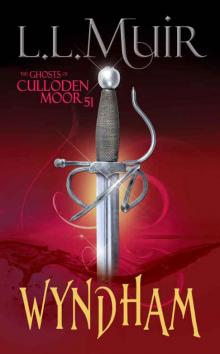 Wyndham
Wyndham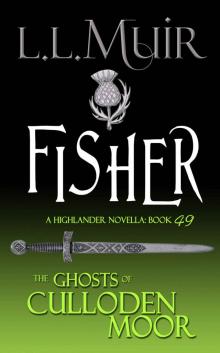 Fisher
Fisher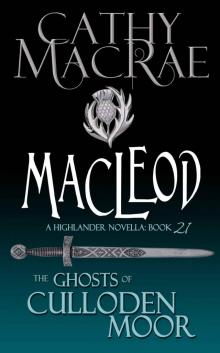 Ghosts of Culloden Moor 21 - MacLeod (Cathy MacRae)
Ghosts of Culloden Moor 21 - MacLeod (Cathy MacRae)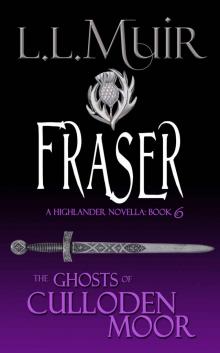 Ghosts of Culloden Moor 06 - Fraser
Ghosts of Culloden Moor 06 - Fraser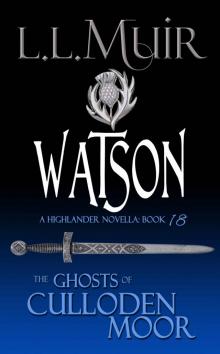 Ghosts of Culloden Moor 18 - Watson
Ghosts of Culloden Moor 18 - Watson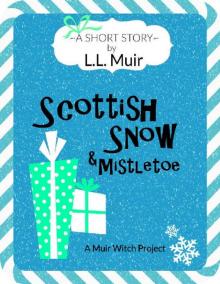 Scottish Snow & Mistletoe: A Short Story
Scottish Snow & Mistletoe: A Short Story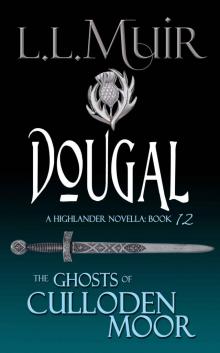 Dougal
Dougal The Curse of Clan Ross
The Curse of Clan Ross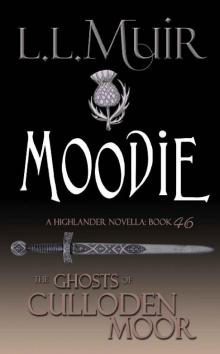 Moodie
Moodie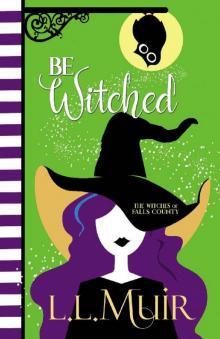 Be Witched
Be Witched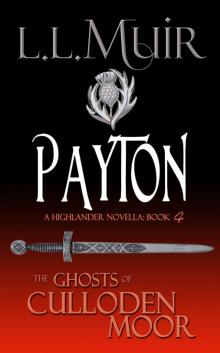 Ghosts of Culloden Moor 04 - Payton
Ghosts of Culloden Moor 04 - Payton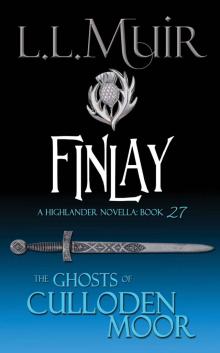 Ghosts of Culloden Moor 27 - Finlay
Ghosts of Culloden Moor 27 - Finlay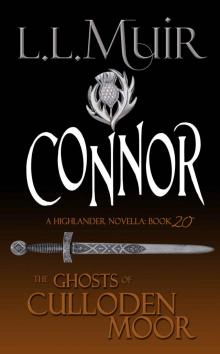 Connor
Connor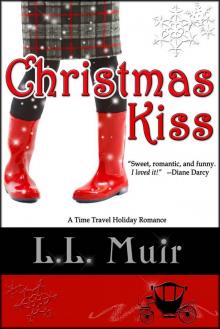 Christmas Kiss (A Holiday Romance) (Kisses and Carriages)
Christmas Kiss (A Holiday Romance) (Kisses and Carriages)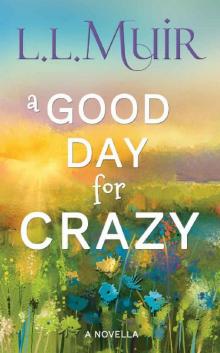 A Good Day for Crazy: A Time Travel Mystery
A Good Day for Crazy: A Time Travel Mystery Ghosts of Culloden Moor 08 - Duncan
Ghosts of Culloden Moor 08 - Duncan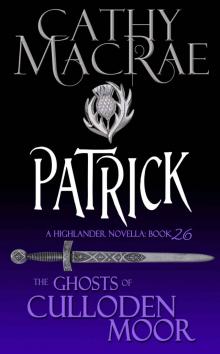 Ghosts of Culloden Moor 26 - Patrick (Cathy MacRae)
Ghosts of Culloden Moor 26 - Patrick (Cathy MacRae)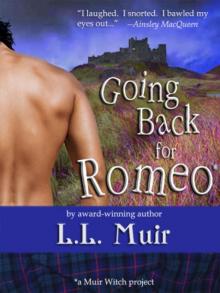 Going Back for Romeo
Going Back for Romeo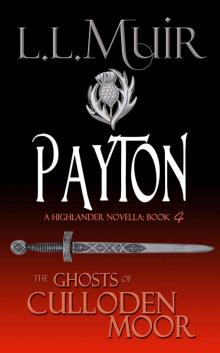 Payton
Payton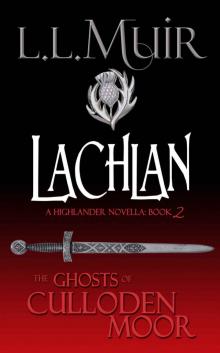 Ghosts of Culloden Moor 02 - Lachlan
Ghosts of Culloden Moor 02 - Lachlan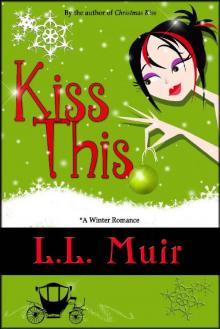 Kiss This
Kiss This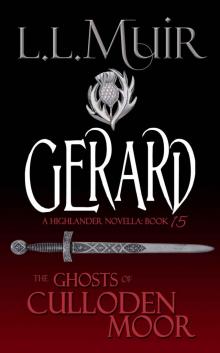 Ghosts of Culloden Moor 15 - Gerard
Ghosts of Culloden Moor 15 - Gerard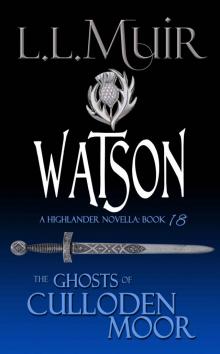 Watson
Watson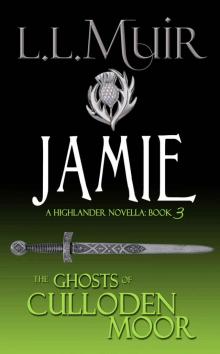 Jamie
Jamie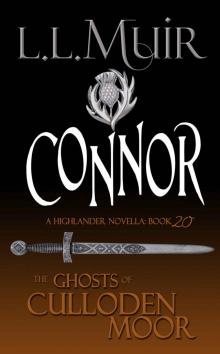 Ghosts of Culloden Moor 20 - Connor
Ghosts of Culloden Moor 20 - Connor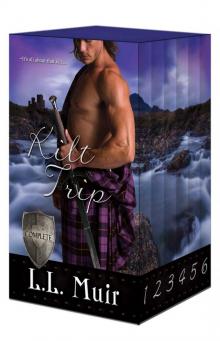 Kilt Trip: (Scottish Historical Romance) (Scavenger Hunting Book 1)
Kilt Trip: (Scottish Historical Romance) (Scavenger Hunting Book 1)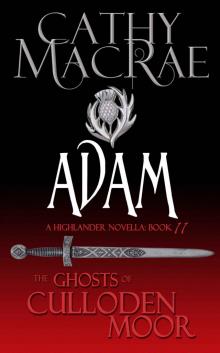 Ghosts of Culloden Moor 11 - Adam
Ghosts of Culloden Moor 11 - Adam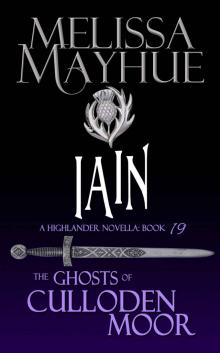 Ghosts of Culloden Moor 19 - Iain (Melissa Mayhue)
Ghosts of Culloden Moor 19 - Iain (Melissa Mayhue)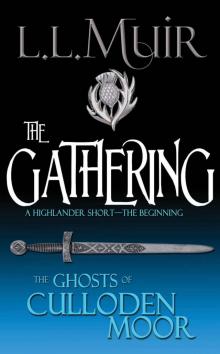 Ghosts of Culloden Moor 01 - The Gathering
Ghosts of Culloden Moor 01 - The Gathering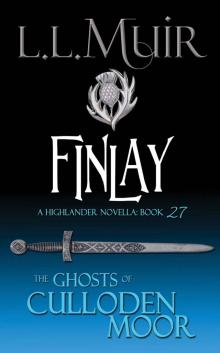 Finlay
Finlay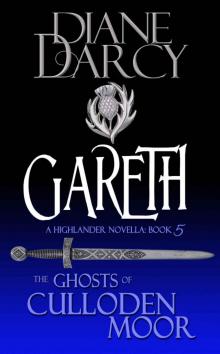 Ghosts of Culloden Moor 05 - Gareth
Ghosts of Culloden Moor 05 - Gareth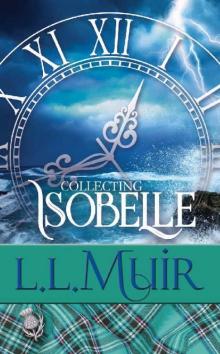 Collecting Isobelle
Collecting Isobelle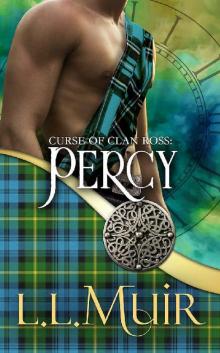 Percy
Percy![[Highlander Time Travel 01.0 - 03.0] The Curse of Clan Ross Read online](http://i1.bookreadfree.com/i1/03/30/highlander_time_travel_01_0_-_03_0_the_curse_of_clan_ross_preview.jpg) [Highlander Time Travel 01.0 - 03.0] The Curse of Clan Ross
[Highlander Time Travel 01.0 - 03.0] The Curse of Clan Ross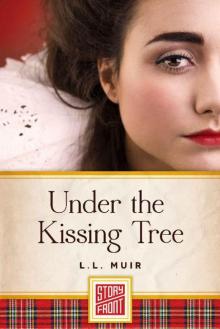 Under the Kissing Tree
Under the Kissing Tree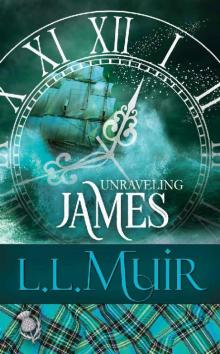 Unraveling James
Unraveling James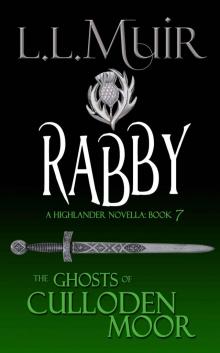 Rabby
Rabby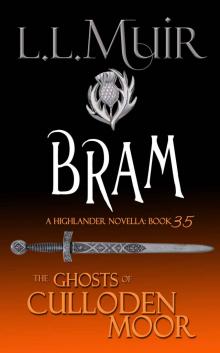 Bram--#35--Ghosts of Culloden Moor
Bram--#35--Ghosts of Culloden Moor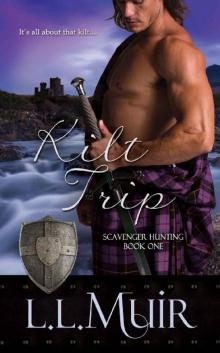 Kilt Trip
Kilt Trip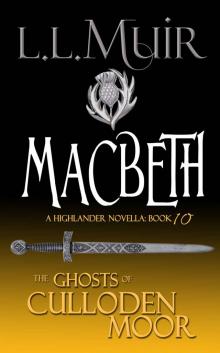 Ghosts of Culloden Moor 10 - Macbeth
Ghosts of Culloden Moor 10 - Macbeth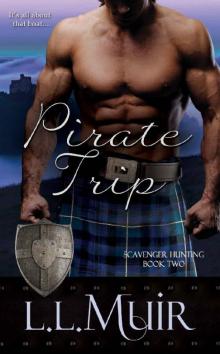 Pirate Trip: (Historical Romance) (Scavenger Hunting Book 2)
Pirate Trip: (Historical Romance) (Scavenger Hunting Book 2)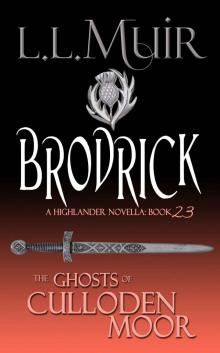 Ghosts of Culloden Moor 23 - Brodrick
Ghosts of Culloden Moor 23 - Brodrick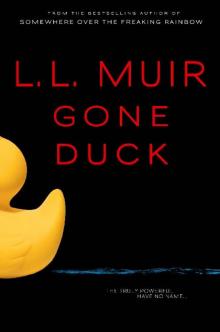 Gone Duck
Gone Duck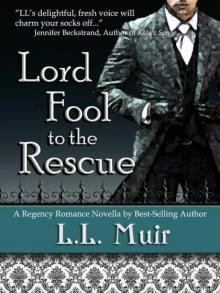 Lord Fool to the Rescue
Lord Fool to the Rescue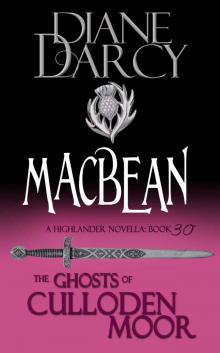 Ghosts of Culloden Moor 30 - MacBean (Darcy)
Ghosts of Culloden Moor 30 - MacBean (Darcy)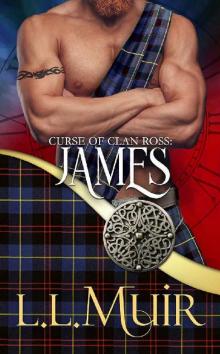 James
James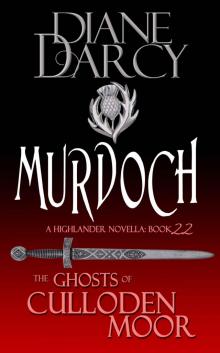 Ghosts of Culloden Moor 22 - Murdoch (Diane Darcy)
Ghosts of Culloden Moor 22 - Murdoch (Diane Darcy)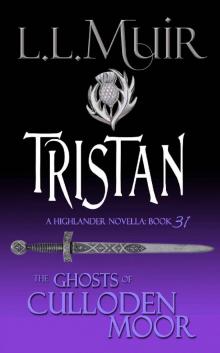 Tristan
Tristan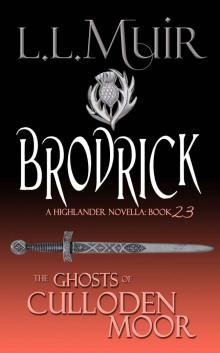 Brodrick
Brodrick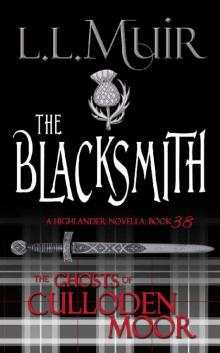 The Blacksmith: A Highlander Romance (The Ghosts of Culloden Moor Book 38)
The Blacksmith: A Highlander Romance (The Ghosts of Culloden Moor Book 38)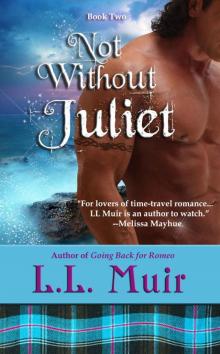 Not Without Juliet (A Scottish Time Travel Romance) (Muir Witch Project #2)
Not Without Juliet (A Scottish Time Travel Romance) (Muir Witch Project #2)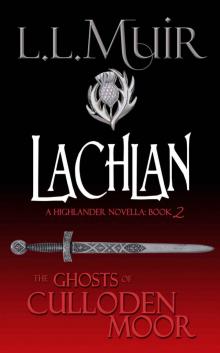 Lachlan
Lachlan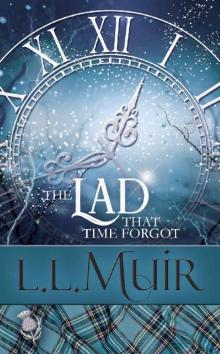 The Lad That Time Forgot
The Lad That Time Forgot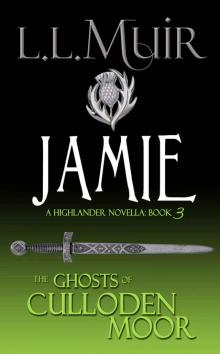 Ghosts of Culloden Moor 03 - Jamie
Ghosts of Culloden Moor 03 - Jamie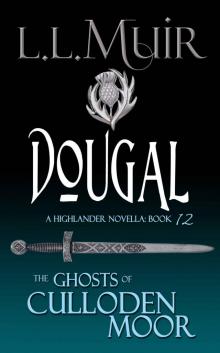 Ghosts of Culloden Moor 12 - Dougal
Ghosts of Culloden Moor 12 - Dougal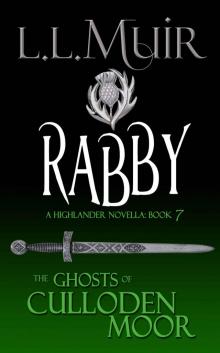 Ghosts of Culloden Moor 07 - Rabby
Ghosts of Culloden Moor 07 - Rabby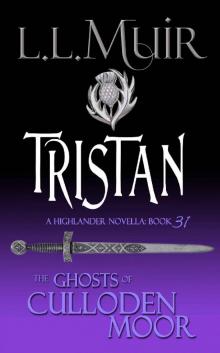 Tristan: A Highlander Romance (The Ghosts of Culloden Moor Book 31)
Tristan: A Highlander Romance (The Ghosts of Culloden Moor Book 31)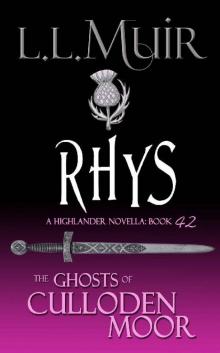 Rhys: A Highlander Short
Rhys: A Highlander Short Ghosts of Culloden Moor 29 - Rory (Jones)
Ghosts of Culloden Moor 29 - Rory (Jones)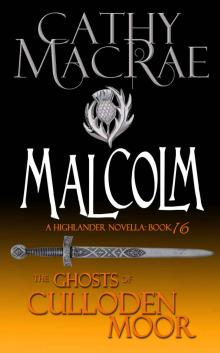 Ghosts of Culloden Moor 16 - Malcolm (Cathy MacRae)
Ghosts of Culloden Moor 16 - Malcolm (Cathy MacRae)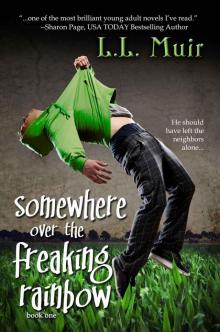 Somewhere Over the Freaking Rainbow (A Young Adult Paranormal Romance) (The Secrets of Somerled)
Somewhere Over the Freaking Rainbow (A Young Adult Paranormal Romance) (The Secrets of Somerled)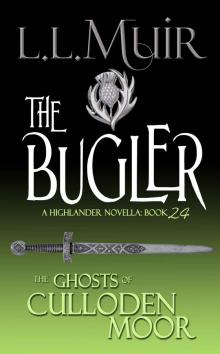 Ghosts of Culloden Moor 24 - The Bugler
Ghosts of Culloden Moor 24 - The Bugler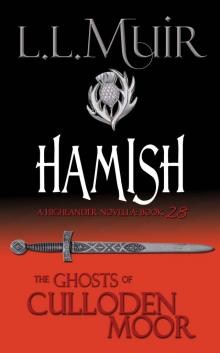 Hamish
Hamish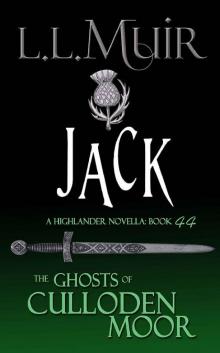 Jack
Jack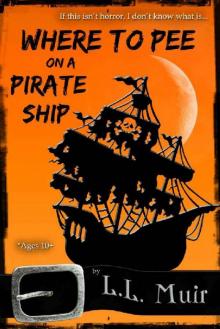 Where to Pee on a Pirate Ship
Where to Pee on a Pirate Ship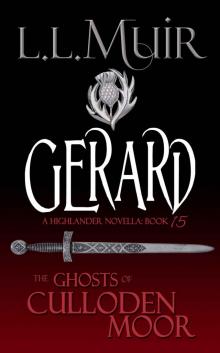 Gerard
Gerard Ghosts of Culloden Moor 09 - Aiden
Ghosts of Culloden Moor 09 - Aiden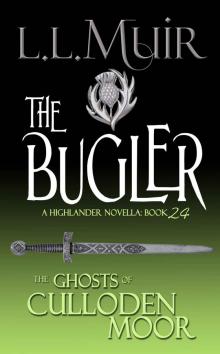 The Bugler
The Bugler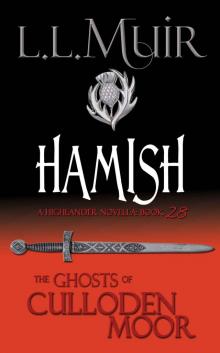 Ghosts of Culloden Moor 28 - Hamish
Ghosts of Culloden Moor 28 - Hamish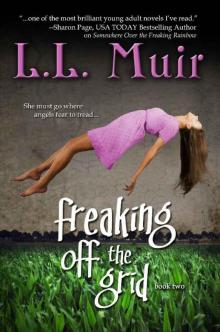 Freaking Off the Grid
Freaking Off the Grid![Rory [Jones] Read online](http://i1.bookreadfree.com/i2/04/13/rory_jones_preview.jpg) Rory [Jones]
Rory [Jones]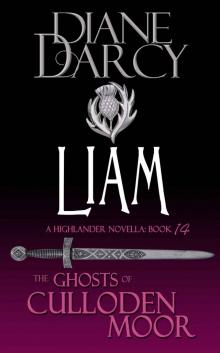 Ghosts of Culloden Moor 14 - Liam (Diane Darcy)
Ghosts of Culloden Moor 14 - Liam (Diane Darcy)